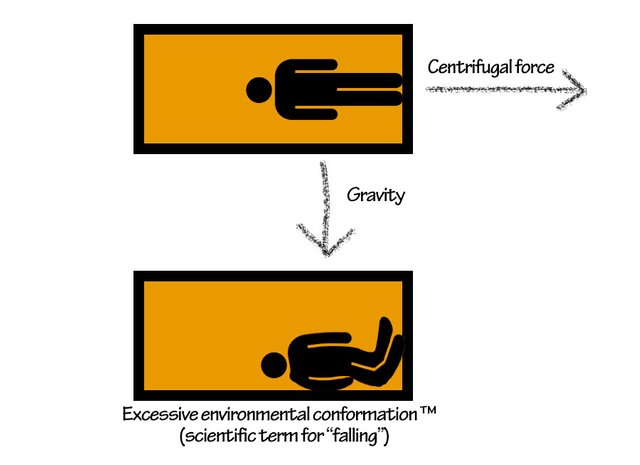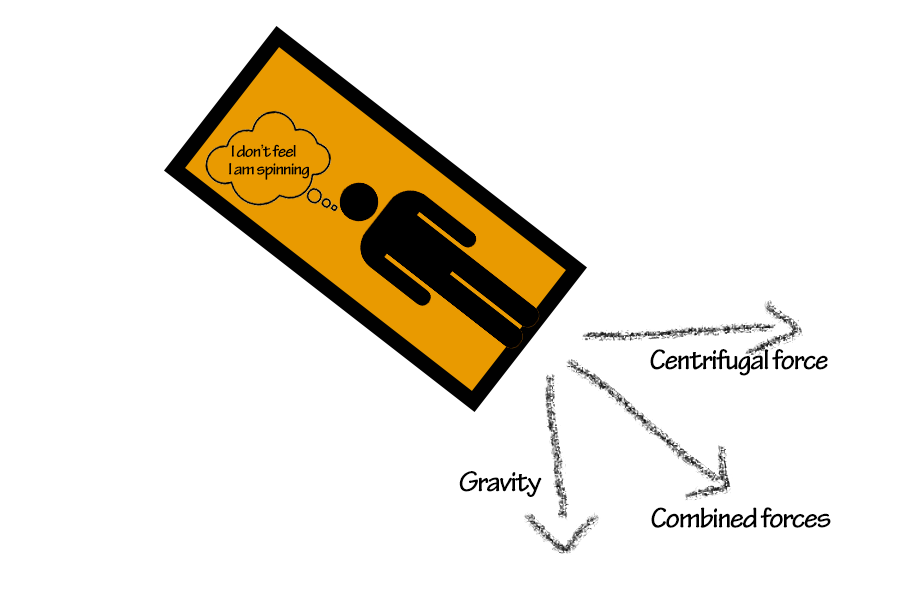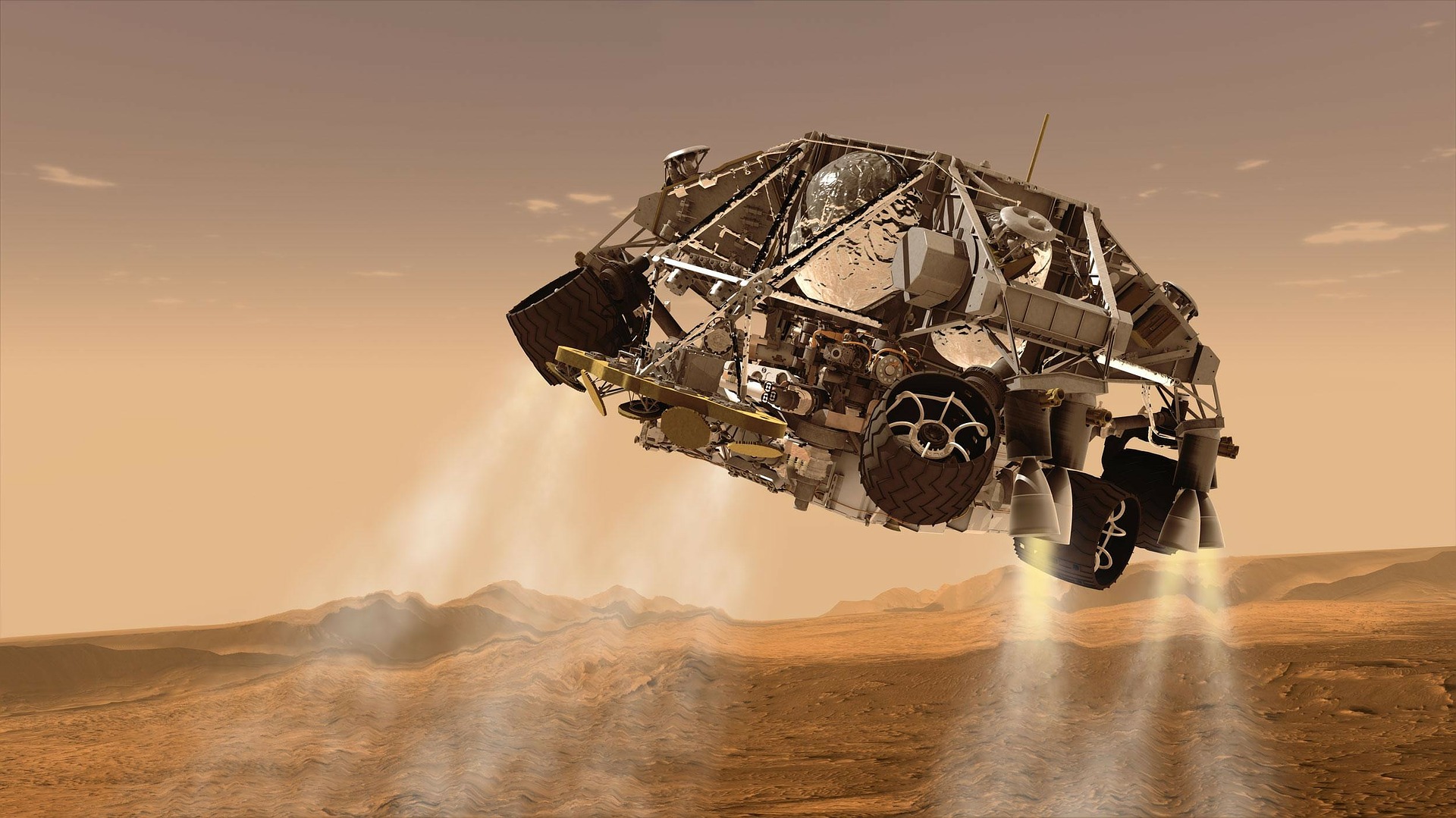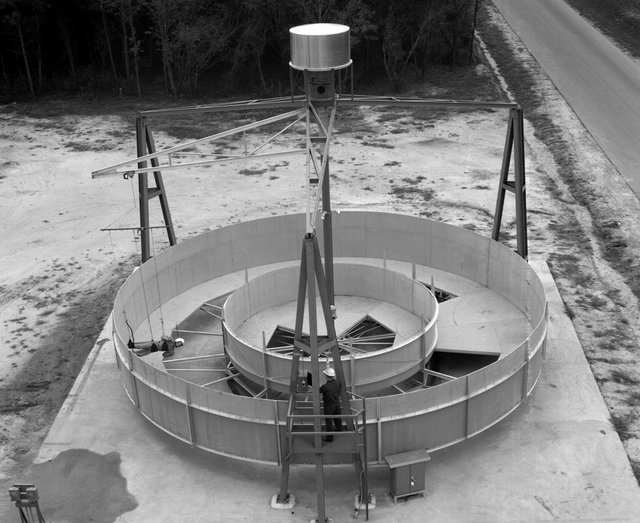How would the low gravity of MARS affect the colonists' bodies and genomes and how can we fight it - Colonization of MARS Series
I will be your guide in this endeavor, trying to compile an easy to read Mars Colonization Handbook. Previously in our imaginary journey we have learned how to launch, orbit, achieve a Mars Insertion Orbit, and land (safely). We have talked about power generation, producing water, oxygen and nutritional sustenance and even fuel to return to earth without having to carry the return fuel. We have discussed about radiation protection and the technology required to make us live on Mars. This article will focus on the long term effects of microgravity on the bodies of the colonists and the solutions that we have.
Microgravity on ISS
We already know that the astronauts we send into space are subjected to long training exercises to maintain their physical strength and prevent any significant decay of their health or abilities when they return to Earth. But if we are talking about colonization, is this practical or we should focus on getting accustomed to the environment?

What could happen on Mars?
When we get to Mars we will feel like super humans. Jumping 2.64 meters or 9 feet into the air, carrying three times more weight than on Earth or throwing objects 1 km or 0.62 miles into the air. But because of its reduced gravity it will contribute to muscle atrophy, where because of the lack of strength training, the muscles will lose their tone and even the skeleton might suffer (osteopenia). The cardiovascular system will slow down and the heart will lose most of its strength. Blood cells are also produced in a lower quantity and their volume might increase in size in a lower gravity and this will contribute to an overall reduced immune system and its response. Our senses will also be paralyzed at least until the mind can cope and adapt to the new conditions. Some people might adapt faster but not all will adapt the same. Our minds know how much we need to raise the hand to get the teaspoon to our mouths, with our eyes closed. But send a person to Mars and he will thrust soup high into the air at first. Combine this with living for 3-6 months in total weightlessness while en-route and get a total chaos in our senses.
Did you know that because of the reduced gravity fluid builds in the upper part of the body, including the head, and an increased intracranial pressure affects vision and if left untreated could leave permanent damage the optic nerves?It wouldn't be as hard as on ISS or on route but it might play a role into increased spatial disorientation.

Fighting the environment?
Mathematics says that in space we could simply create a spinning environment to take advantage of the centrifugal force. The centrifugal force is an inertial force that is directed away from the axis of rotation. Spin a plate with some food on it fast enough and it will soon be thrown out in all directions.

Source
But there are some problems with trying to do something like this on Mars. Mars has its own gravity and simply rotating on the horizontal plane will not help very much since the gravitation will pull us to one side and we will have to be held by cables, like in the following experiment made my NASA in the 60's .

Creating our own gravity!
What would happen if we would not use cables? Because nobody wants to be held with cables all life long. I have made a quick infographic based on a sectional view of the ring (still trying to get all of @MathOwl's owls ):

To prevent this from happening, we can take ideas from something that we have already designed: the carousel. In a cable carousel, the resulting force of both the centrifugal force and the gravitational force is pulling on each seat, orienting and keeping the people riding them in the correct alignment. We could do something similar by rotating the section, so that the forces combined to always be under the colonists' legs, realistically simulating natural gravity:

Even more, by calculating the radius of the spinning system we could simulate the exact gravity here on Earth. The system could be made out of converted landed spacecraft sections. By using cylindrical sections we have even more control of the angle of rotation, since the colonist rely on furniture and appliances we could devise a system to rotate every section by using hinges at the ends of each section and attach cables to that hinges. This way, if the system suddenly loses power (as this system will obviously be secondary in nature due to the fact that it is not an essential life support system) it can change its angle all the way back to 0 when it comes to a complete stop.

The artificial gravity ring will only be able to generate 1g (the gravity force on Earth) on the outer ring, but further rings could be inner placed and will only benefit of decreased gravitational pull as they get closer to the center pole. These might prove good for studies, acclimatization. The center ring will be static and will also be the only part which would be easily accessible due to the rotation of the rest of the system. Other spacecraft could dock to the system through the center pole and colonist could exit towards the base of the system.
Another advantage of such a system would be the fact that it can be started without a full ring in place. Even one single section can be used if the central pole is resistant enough to held the uneven load and oscillative movements or they could be attached in pairs. By using regolith as ballast they could even use that to counter the forces in the beginning, so it can be scaled up or down (maintenance, replacement).
They could be used to prepare the colonists for their return to Earth, or could provide a fast way to get used to the low gravity on Mars. They might even be used as a therapeutic mechanism to keep the colonists in good health. Who wouldn't want a spinning gym?

What about radiation? Wouldn't be better to build it underground?
If it is just a form of therapeutic mechanism or temporary training platform, then no, since the outer shell would be made out of the spacecraft that are already pretty safe to be in. But if such a system would be used for habitation than it would be a good idea to get it underground. We have discussed in the article before about such underground lava tubes or collapsed ceiling lava tubes.

I have made a quick simulation of what the system would look like, after placement in a collapsed lava tube.

This simulation shows the external profile seen from above ground, the central pole also acts as a landing pad for subsequent spacecraft, or facilitating the addition of sections underground while also "plugging" the collapsed section, protecting the complex inside from external radiation.

Adapting to microgravity
One of the emblematic studies made in this field was published last year by the University of Houston.It was the first study that covered over 1000 generations. It involved setting up a centrifuge which would simulate a microgravity environment. The microorganism used was a non-pathogenic E. coli, which is one of the most common bacteria, also present in the human body. Two strains were used for comparison, one in normal Earth gravity and the other in microgravity. The results were interesting and somehow expected, given the resilience of life. The microgravity strain, called MG1655 had a better development than the Earth gravity strain, NCM520, by a factor of three.
How was that possible? The explanation revolves around the same principle that shaped the evolution of life on Earth. Evolution and adaptation plays a major role in species' thriving.
Getting more in-depth into the science, the environmental factors were so stressful that the microgravity strain had to radically adapt to survive, this translating into a number of 16 mutations being observed after 1000 generations, 5 of them being in the codons. A codon is a building block of a gene. It consists of three nitrogen bases which represent an amino acid, when creating a new protein. They are found in the RNAm, which is a version of the DNA. Sequencing the mutated organism found genomic adaptation at least in part being responsible for the mutations. The most important finding is that none of the 5 mutations seem to be neutral, this means that all the mutations were not random but in fact helped the microorganism thrive in its new inhospitable environment. These mutated traits were kept even after the microorganism was subjected to the Earth gravity for a number of up to 30 generations.
Is the human race going to branch out?
It surely seems so, even if the astronauts continue to work out and maintain a healthy level of strength training, the degenerative processes will eventually happen. So in long term, the prospect of living on Mars means that the human body will suffer modifications that will allow humans to adapt to the Martian environment which we can't easily modify, like the gravity.

Inevitable conclusions:
I have really enjoyed myself writing this article (and took a sweet time doing so) but we must reach its conclusions. The task of creating an artificial gravity to match the one on Earth is a monumental task. It could be made and eventually it should be, but we must come to terms with the fact that space exploration might change the human appearance, genome and even come to define what being human is. We might have some colonists that choose not to ever return to Earth so they will get no benefit from increased gravity and there might be a moment when all the athletes on Mars will come to Earth for practice.
But for the first colonists, artificial gravity will be an item of luxury and they will have to rely on the techniques employed by the ISS to keep in shape while they are there and until systems that can generate more gravity will be available to them.

Additional info:
https://rightbrane.wordpress.com/ - STEVEN LYLE JORDAN
He wrote a lot of fiction stories which are heavily based on science. I found a lot of them on my taste when I was a student.
https://www.wired.com/2014/02/happens-body-mars/
https://space.stackexchange.com/questions/897/will-colonists-on-mars-have-enhanced-physical-mobility-relative-to-an-earth-norm
https://en.wikipedia.org/wiki/Effect_of_spaceflight_on_the_human_body#Disruption_of_senses
https://www.nasa.gov/mission_pages/station/research/experiments/636.html
https://phys.org/news/2016-12-space-cucumbers-reveal-secrets-survival.html





Let me nitpick on the part of low (Mars) gravitation effect on human body. If I understand correctly you took the problems that microgravity (weightlessness) throws at human body and then made an implicit assumption that they will appear in low gravitation too, only to a lesser degree maybe.
Well, the problem is that we simply don't have enough data to interpolate between 0 g and 1 g, because the longest stay in low gravitation that humans experienced was little over three days in our Moon's 0.16 g (Apollo 17). We can only speculate about Mars gravity effects on human body, but I wouldn't call it science.
Thanks for the nitpicking. I have always said that the research is currently lacking (we had many years of less than adequate funding) and this is the purpose of the series, to get more exposure and maybe motivate some people to actually follow a career in space.
I have seen your point of view during my documentation and I totally agree to it, we don't have enough data to draw a conclusion, but the scientific method also allows for extrapolation and creation of "possible" or "probable" outcomes, but can also prove me wrong. This is why I didn't insist on this idea very much and tried to focus on methods to generate artificial gravity.
Until we actually put people on Mars and monitor them, fetal growth and everything else, we have no way to be sure of the real impact on humans.
A precautionary approach would be to be prepared for this rather than assume nothing will happen.
Thanks for dropping by!
I do agree with precautionary approach to living in low gravity being the best and farthest conclusion that we can make from the scarce data points gathered so far. Now the best course of action from here would be to test long-term (several months long) effects of low gravity on human body in a specialized mini-station in low Earth orbit. You don't need to build the huge Space Odyssey style rotating structure for this purpose. A single module the size of Destiny lab tethered to a counterweight and spun enough to simulate 1/3 g is all that you need. Sadly nobody from NASA to Zubrin to Musk has serious plans of doing low gravity research before heading to Mars. Maybe an interim step of semi-permanent Lunar base is not such a bad idea even though it would postpone the actual trip to Mars.
Your post has been selected by Connect to the World FR
@cw-fr
We promote English posts in the French community!!
We are writing a post with our selection that we share within the French community
you can see the post by clicking on the image below
Thanks for the great content!!
To be honest, I am unsure that we can survive if we go to far from Earth. Even though science went quite far technological speaking, do we really know all the possible effects on the human body, of actually leaving the planet?
I am not a space geek, so I might be just ignorant. Still, the question is here for anyone more knowledgeable 😃.
If a medium size meteorite is hitting our planet, there will be huge fires and smoke can block the light for several years. Life in such conditions might be more difficult than the one on Mars. If we are a specie living on a single planet, we might also be extincted, like the dinosaurs. Being a multi-planetary specie, will enable us to return on a post-disaster Earth and resume our civilization. This is why we must go on Mars!
Thanks for stopping by. Your argument is the main one for space colonization in general, a version of panspermia, this time made knowingly by us.
That's a good question you are asking. But if some people want to test it out, so let them go. We can learn from them when they will have made experiences.
But i personally would like to stay on earth even if it's proven that we can survive on other planets.
Indeed, the goal of my series was to bring those studies to the public. Studies that get close to explaining all we know about the subject. As the studies progress we can say for sure that we will be able to survive for 1-2-3 years. It's what happens beyond that we have no idea of. We don't know if people can give birth in space or if fetal development is natural. We have made a few experiments with animals on ISS but nothing will prepare us. When the first men went to Space there were plenty of scientists sure that the astronaut would surely die.
We will just have to make baby steps and find out what is going on.
Hey @alexdory, thank you for your contributions!
This Colonization of Mars Series of yours is very interesting. I think creating a sufficient atmospheric layer on the red planet's surface in order to sustain life and protect living organisms from radiation is one of the biggest challenges regarding this endeavour.
I was impressed by the mutations observed in generations of microorganisms as they get used to microgravity. I also must admit I had never thought of the total chaos regarding our senses as a result of the significant changes in gravitational pull on our way to the red planet and while we're there. Mind blowing!
Please keep up the quality work!
Thanks a lot, I also think that manipulating the atmosphere will be the best way to fully develop settlements on Mars, but we are far from even sending a single person there :) I know SpaceX said that in 2022-2024 we will have the first people on Mars but I am still wondering if it will actually be possible without postponing it to 2030 when NASA will prepare to send a similar mission.
There is a lot to figure out and a lot of research needs to be done once people get there for the first time.
It will be the greatest human endeavour!
I enjoy your article, you write it in detail.
I imagine how hard it is to live an early life on Mars, but the problem can be solved is not it ?!
you plunge and drown in this ocean of inspirational writing! :)
thanks for sharing ...
Thanks, it's a pleasure for me to be able to synthesize this and have a place to lay them out.
I have insight of other fields as well, as soon as I am done with the relevant ideas for Mars.
Thanks for being here and letting yourself get motivated!
Great article @alexdory. Surface gravity is about 1/3 earth's so maybe we might just be OK, with a decent amount of weight training (maybe even wearing weights).
Thanks but no weights, I would like to jump high :D
Ok, ok, you are right, maybe we could use weights for the short term and keep the health levels optimal.
But still allow time with weights off so we can jump..
I feel like you are a scientist who thinks a lot about Mars
inspirational writer !, you think of something that I do not think many people think about but you really master it.
many people who judge living on Mars are impossible, but you have outlined the problems that will be encountered there this paper could have reversed the content of their dubious minds.
you are very master here, cheers...
Thanks a lot, I have searched for this information together for a long while and I couldn't find anything similar to this. I thought it's a great place to start and the fact that a simple guy like me can add new things to this field, is already interesting for me. And sad since we should have been much farther with the science!
I found this through @thesteemengine, and man! This is right up my alley! I've said for as long as I can remember, I'll go be a janitor just to get the chance to live on Mars! I can't wait until our journey truly begins!
And I have a full series on that :D
Glad to see you here! TheSteemEngine really promoted me a few times and helped me gain more exposure. Sometimes people forget that curating articles is also a good source of income and prevents bad content from staying here. Thanks for dropping by!
Informative
I appreciate your input and the time you took to give me your honest feedback. I do think that peer support is something that can bind us together, since a good structured feedback tells me a lot about yourself and makes me want to look at your blog.So basically it's free promotion. This is why it's important to convey your honest feedback, even if it consumes a little more of your time. Thank you!
He didn't read your post. He spams random things to as many accounts as he can. He only is trying to get people to upvote him. Don't let accounts like that fool you.
I know but I am trying a different approach, by using positive motivation. Tried to make him understand that connecting with others is a good thing for his wallet.
YOU ARE A SPAMMER
@SteemFlagRewards This account has been warned for comment spam.
Flagging that account will help remove it's spam.
Please consider to UPVOTE THIS WARNING if you find my work to protect you & the platform valuable. Have a nice day!
🔴🔵🔴🔵🔴🔵🔴🔵🔴🔵🔴🔵🔴🔵🔴🔵🔴🔵🔴🔵🔴🔵🔴🔵🔴🔵🔴🔵
nice